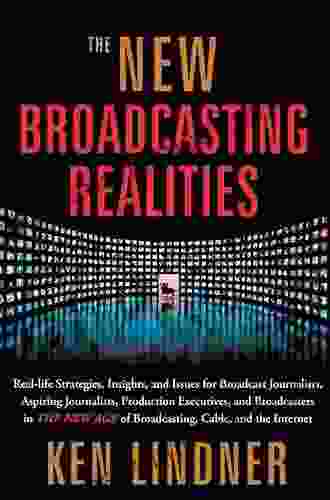Shared Histories, Current Issues, and Future Identities

A Book Review
Shared Histories, Current Issues, and Future Identities is a new book that examines the complex and often-fraught relationship between the past, present, and future. The book brings together a diverse group of scholars to explore how our understanding of the past shapes our current identities and how those identities, in turn, influence our vision of the future.
4.7 out of 5
| Language | : | English |
| File size | : | 9866 KB |
| Text-to-Speech | : | Enabled |
| Screen Reader | : | Supported |
| Enhanced typesetting | : | Enabled |
| Word Wise | : | Enabled |
| Print length | : | 210 pages |
The book is divided into three parts. The first part, "Shared Histories," examines how our understanding of the past is shaped by our present needs and desires. The second part, "Current Issues," explores how our current identities are shaped by our past experiences. The third part, "Future Identities," looks at how our vision of the future is shaped by our current identities and our understanding of the past.
The book is a timely and important contribution to the field of history. It provides a nuanced and sophisticated understanding of the relationship between the past, present, and future. The book is also a valuable resource for anyone who is interested in understanding the complex challenges facing our world today.
Part 1: Shared Histories
The first part of the book, "Shared Histories," examines how our understanding of the past is shaped by our present needs and desires. The authors in this section argue that our understanding of the past is not fixed and unchanging, but rather is constantly being reshaped by the present. This process of reshaping is often driven by our need to make sense of our current experiences and to find ways to justify our present actions.
One of the most important factors that shapes our understanding of the past is our present political and social context. The way that we interpret the past is often influenced by our current political beliefs and social values. For example, a conservative who believes in the importance of individual liberty is likely to interpret the past in a way that emphasizes the role of individual freedom. A liberal who believes in the importance of social equality is likely to interpret the past in a way that emphasizes the role of social justice.
Our understanding of the past is also shaped by our personal experiences. The things that we have experienced in our own lives can influence how we interpret the past. For example, someone who has experienced trauma is likely to interpret the past in a way that emphasizes the dangers of violence. Someone who has experienced success is likely to interpret the past in a way that emphasizes the importance of hard work.
Part 2: Current Issues
The second part of the book, "Current Issues," explores how our current identities are shaped by our past experiences. The authors in this section argue that our identities are not fixed and unchanging, but rather are constantly being shaped by our experiences. This process of shaping is often driven by our need to make sense of our past experiences and to find ways to cope with the challenges that we face.
One of the most important factors that shapes our current identities is our race and ethnicity. Our race and ethnicity can influence our experiences of discrimination and racism, which in turn can shape our sense of self. For example, a person of color who has experienced racism is likely to have a different sense of self than a white person who has not experienced racism.
Our gender also plays a significant role in shaping our current identities. Our gender can influence our experiences of sexism and misogyny, which in turn can shape our sense of self. For example, a woman who has experienced sexism is likely to have a different sense of self than a man who has not experienced sexism.
Our sexual orientation can also play a significant role in shaping our current identities. Our sexual orientation can influence our experiences of homophobia and discrimination, which in turn can shape our sense of self. For example, a gay person who has experienced homophobia is likely to have a different sense of self than a straight person who has not experienced homophobia.
Part 3: Future Identities
The third part of the book, "Future Identities," looks at how our vision of the future is shaped by our current
identities and our understanding of the past. The authors in this section argue that our vision of the future is not fixed and unchanging, but rather is constantly being reshaped by our current experiences and our understanding of the past. This process of reshaping is often driven by our need to imagine a better future for ourselves and for our children.
One of the most important factors that shapes our vision of the future is our hope. Hope is the belief that the future will be better than the present. This belief can be a powerful motivator for change. For example, a person who has experienced poverty may have a vision of the future in which everyone has access to food and shelter. A person who has experienced war may have a vision of the future in which there is peace.
Our fear can also play a significant role in shaping our vision of the future. Fear is the belief that the future will be worse than the present. This belief can be a paralyzing force. For example, a person who has experienced trauma may have a vision of the future in which they are constantly in danger. A person who has experienced economic hardship may have a vision of the future in which they are always struggling to make ends meet.
Shared Histories, Current Issues, and Future Identities is a timely and important contribution to the field of history. It provides a nuanced and sophisticated understanding of the relationship between the past, present, and future. The book is also a valuable resource for anyone who is interested in understanding the complex challenges facing our world today.
4.7 out of 5
| Language | : | English |
| File size | : | 9866 KB |
| Text-to-Speech | : | Enabled |
| Screen Reader | : | Supported |
| Enhanced typesetting | : | Enabled |
| Word Wise | : | Enabled |
| Print length | : | 210 pages |
Do you want to contribute by writing guest posts on this blog?
Please contact us and send us a resume of previous articles that you have written.
 Book
Book Novel
Novel Page
Page Chapter
Chapter Text
Text Story
Story Genre
Genre Reader
Reader Library
Library Paperback
Paperback E-book
E-book Magazine
Magazine Newspaper
Newspaper Paragraph
Paragraph Sentence
Sentence Bookmark
Bookmark Shelf
Shelf Glossary
Glossary Bibliography
Bibliography Foreword
Foreword Preface
Preface Synopsis
Synopsis Annotation
Annotation Footnote
Footnote Manuscript
Manuscript Scroll
Scroll Codex
Codex Tome
Tome Bestseller
Bestseller Classics
Classics Library card
Library card Narrative
Narrative Biography
Biography Autobiography
Autobiography Memoir
Memoir Reference
Reference Encyclopedia
Encyclopedia Jacqui Phillips
Jacqui Phillips Linda B Tawney
Linda B Tawney Ingrid Betancourt
Ingrid Betancourt S K Dewan
S K Dewan Susan Greenwood
Susan Greenwood Robert Samuels
Robert Samuels Ian Castle
Ian Castle J Thomas Mcclintock
J Thomas Mcclintock Ivy Smoak
Ivy Smoak J Dennis Thomas
J Dennis Thomas Stewart P Oakley
Stewart P Oakley Vincenzo Di Nicola
Vincenzo Di Nicola Matthew C Altman
Matthew C Altman J R Oldfield
J R Oldfield Michael K Honey
Michael K Honey Isaac T Manyonda
Isaac T Manyonda Noriko Misumi
Noriko Misumi Ian Guch
Ian Guch Ida B Wells Barnett
Ida B Wells Barnett Jack Brown
Jack Brown
Light bulbAdvertise smarter! Our strategic ad space ensures maximum exposure. Reserve your spot today!

 Jackson BlairStories From The Hearts Of Two Grandmas: A Timeless Treasure for Generations
Jackson BlairStories From The Hearts Of Two Grandmas: A Timeless Treasure for Generations
 Felix HayesWhat Paranoid Antisocial Sadomasochist and Sexual Disorders Have in Common:...
Felix HayesWhat Paranoid Antisocial Sadomasochist and Sexual Disorders Have in Common:...
 Hudson HayesHazardous Materials Manual: A Comprehensive Guide to Handling and Disposing...
Hudson HayesHazardous Materials Manual: A Comprehensive Guide to Handling and Disposing... Warren BellFollow ·10.5k
Warren BellFollow ·10.5k Harold PowellFollow ·7.7k
Harold PowellFollow ·7.7k Morris CarterFollow ·19.2k
Morris CarterFollow ·19.2k Clayton HayesFollow ·8.5k
Clayton HayesFollow ·8.5k Colin RichardsonFollow ·11.1k
Colin RichardsonFollow ·11.1k Branden SimmonsFollow ·10.1k
Branden SimmonsFollow ·10.1k Alfred RossFollow ·12.1k
Alfred RossFollow ·12.1k Spencer PowellFollow ·17k
Spencer PowellFollow ·17k

 Mike Hayes
Mike HayesUnlock Your Nonprofit Potential: A Comprehensive Guide to...
: Embarking on the Path to Impactful...

 Cody Russell
Cody RussellUnlock the Secrets of Captivating Radio Programming:...
In the fiercely competitive world of...

 Aron Cox
Aron CoxUnveiling the Enchanting World of Beth Inspired Eye...
A Realm of Imagination and Wonder Embark on...

 Felix Carter
Felix CarterUnlock the Secrets of Legal Publishing with West Hartford...
West Hartford Legal Publishing, the renowned...

 Henry Hayes
Henry HayesUnveiling the Secrets of the Panama Papers: Exposing...
The Panama Papers is a groundbreaking...
4.7 out of 5
| Language | : | English |
| File size | : | 9866 KB |
| Text-to-Speech | : | Enabled |
| Screen Reader | : | Supported |
| Enhanced typesetting | : | Enabled |
| Word Wise | : | Enabled |
| Print length | : | 210 pages |








